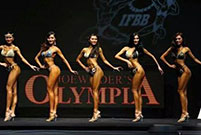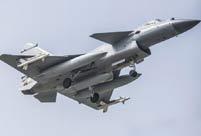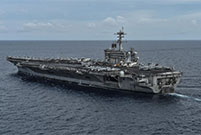

North Korea could have boosted yield of nuclear device: expert
North Korean leader Kim Jong-un appeared on Thursday to claim his country has developed a hydrogen bomb, a step up from the less powerful atomic bomb, but outside experts were skeptical.
Kim made the comments as he toured the Phyongchon Revolutionary Site, which marks the feats of his father who died in 2011 and his grandfather, state founder and eternal president, Kim Il-sung, the official KCNA news agency said.
The work of Kim Il-sung "turned the DPRK (Democratic People's Republic of Korea) into a powerful nuclear weapons state ready to detonate a self-reliant A-bomb and H-bomb to reliably defend its sovereignty and the dignity of the nation," KCNA quoted Kim Jong-un as saying.
A hydrogen bomb, also known as a thermonuclear bomb, uses more advanced technology to produce a significantly more powerful blast than an atomic bomb.
North Korea conducted underground tests to set off nuclear devices in 2006, 2009 and 2013, for which it has been subject to UN Security Council sanctions banning trade and financing activities that aid its weapons program.
The country has said its pursuit of nuclear weapons is an outcome of the US hostile policy toward it.
An official at South Korea's intelligence agency told Yonhap news agency there was no evidence that the North had hydrogen bomb capacity, and believed Kim was speaking rhetorically.
The Chinese foreign ministry said on Thursday that China was dedicated to ensuring the denuclearization of the Korean peninsula and resolving problems through dialogue.
"We hope that all sides can do more to ameliorate the situation and make constructive efforts to maintain peace and stability on the peninsula," ministry spokeswoman Hua Chunying told a daily news briefing when asked about Kim's remarks.
China has been seeking to resume the Six-Party Talks on North Korea's nuclear issue since the last one ended in 2009. But no signs show it will take place any time soon.
The six parties involved are China, Russia, North Korea, South Korea, the US and Japan.
North Korea and South Korea remain technically at war after their 1950-53 conflict ended in a truce, not a treaty. The North has threatened to destroy the South and its major ally, the US, in a sea of flames.
Despite the underground tests, outside experts suspect the North is short of achieving the capability to put a nuclear warhead on a missile, although it has boasted it had succeeded in the miniaturization of a weapon.
If the hydrogen bomb claim is true, it would indicate advances in the North's pursuit of nuclear weapons.
"I think it's unlikely that they have an H-bomb at the moment, but I don't expect them to keep testing basic devices indefinitely, either," said Jeffrey Lewis of the California-based Middlebury Institute of International Studies at Monterey.
It was possible the North was referring to the technology of boosting the yield of a nuclear device, possibly using fusion fuel, Lewis said.
North Korea claimed in 2010 that it had successfully developed fusion technology.
Assessing progress of the North's nuclear program is difficult because no one outside a close circle of leaders and experts knows what advances have been made.
 Chinese beauty with sexiest bottom
Chinese beauty with sexiest bottom All-star Carnival held in Beijing
All-star Carnival held in Beijing Charming female bodybuilders of Chengdu University
Charming female bodybuilders of Chengdu University Polish sports stars strip off for risqué calendar
Polish sports stars strip off for risqué calendar Spectacular aerial photos of the Three Gorges
Spectacular aerial photos of the Three Gorges Contestants of Mrs. Globe pose for photo in Shenzhen
Contestants of Mrs. Globe pose for photo in Shenzhen
 Bikini models attend hot pot banquet in Hefei
Bikini models attend hot pot banquet in Hefei J-10B fighters with homegrown engine in test fligh
J-10B fighters with homegrown engine in test fligh Photos of U.S. Navy intruding in South China Sea released
Photos of U.S. Navy intruding in South China Sea released Top 20 hottest women in the world in 2014
Top 20 hottest women in the world in 2014 Top 10 hardest languages to learn
Top 10 hardest languages to learn 10 Chinese female stars with most beautiful faces
10 Chinese female stars with most beautiful faces China’s Top 10 Unique Bridges, Highways and Roads
China’s Top 10 Unique Bridges, Highways and RoadsDay|Week